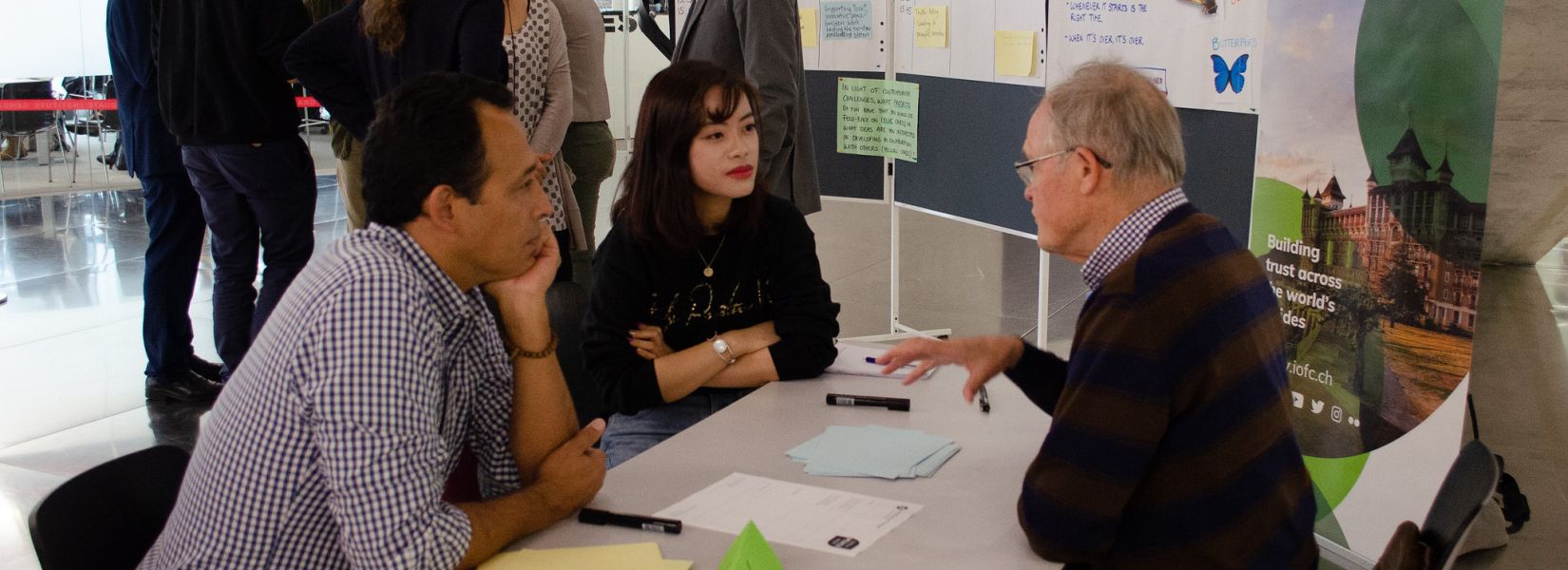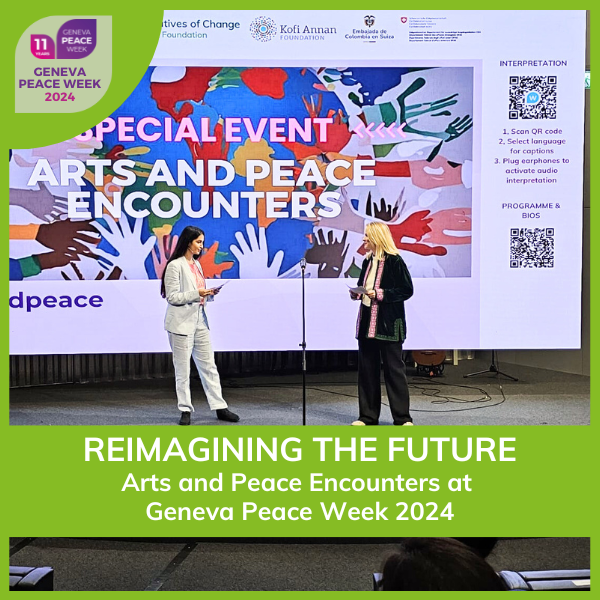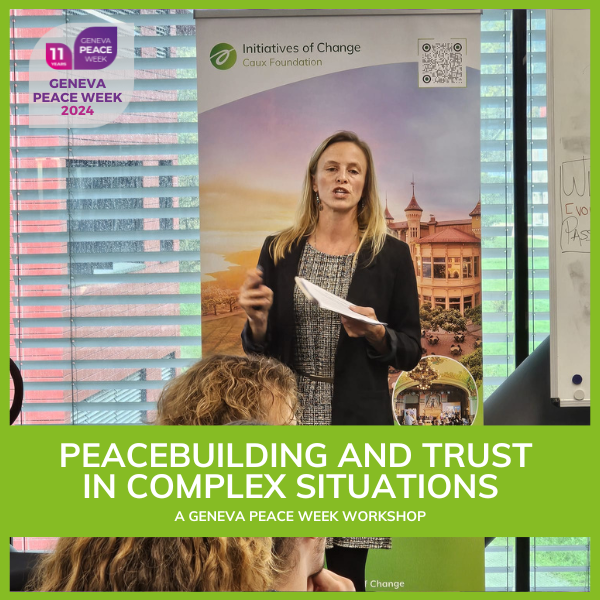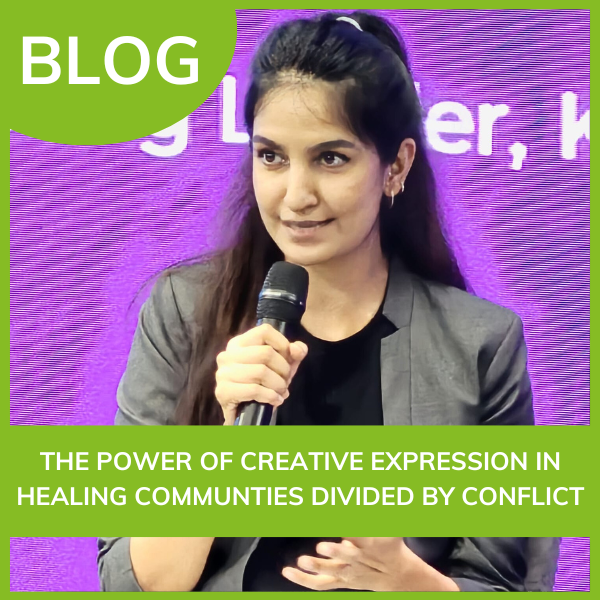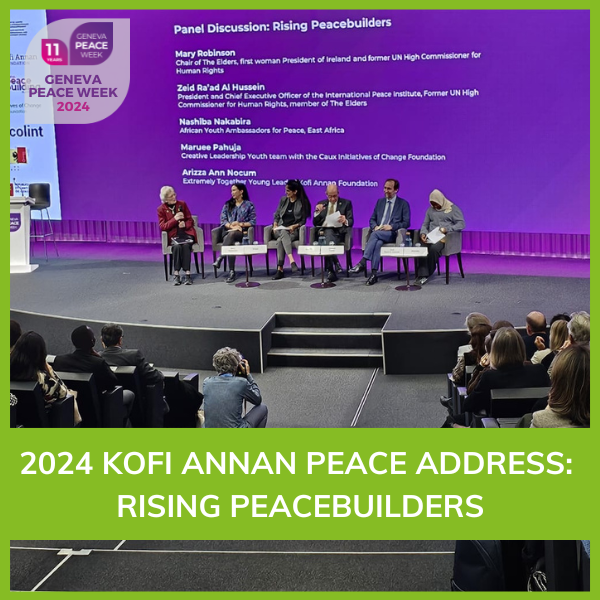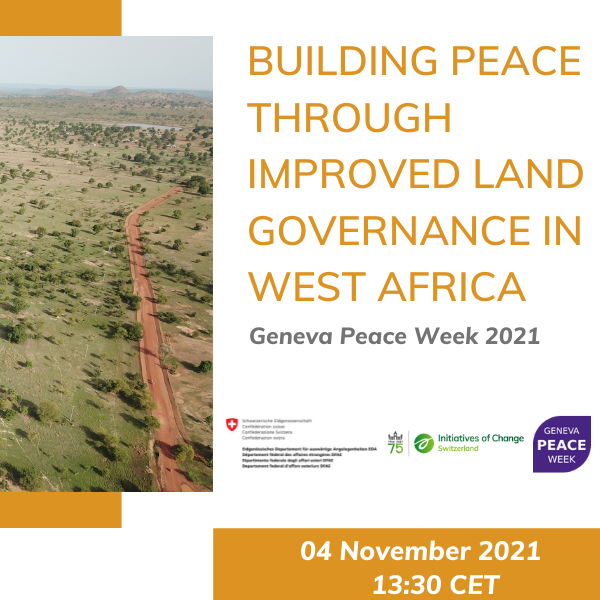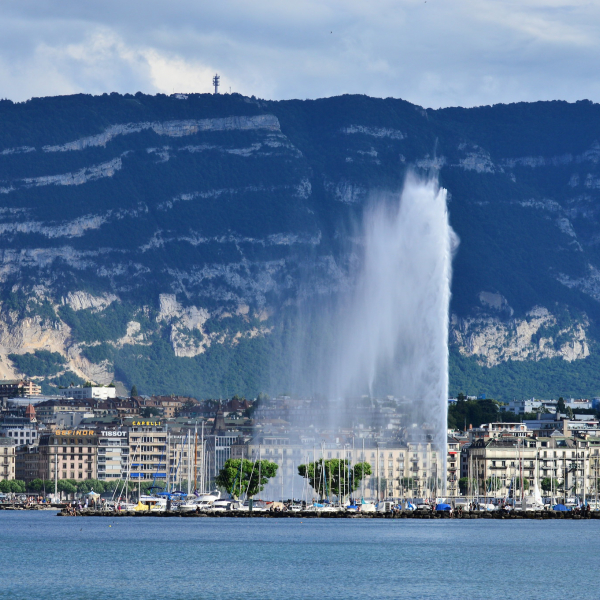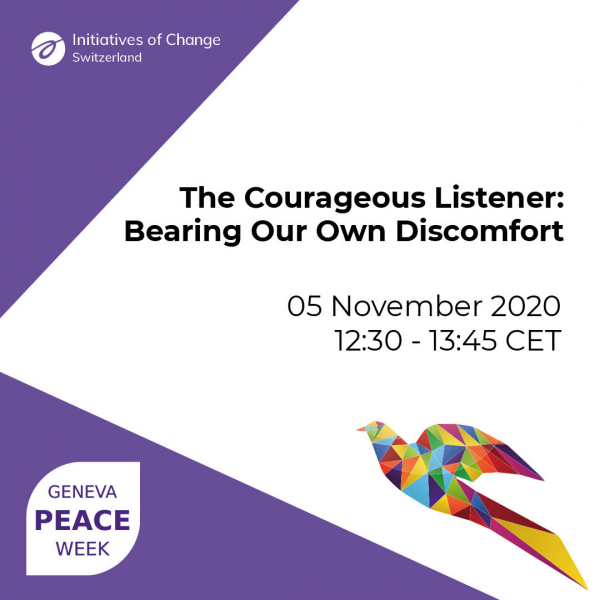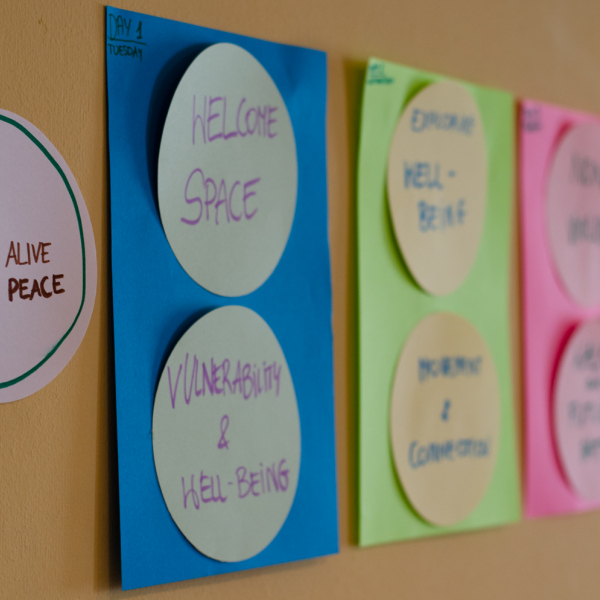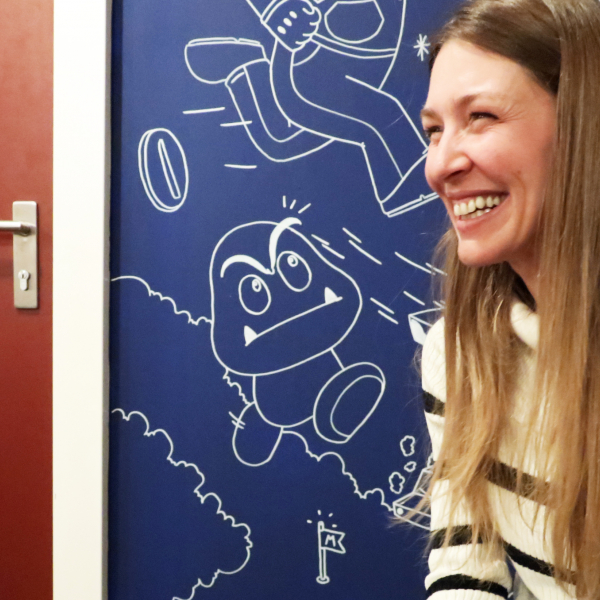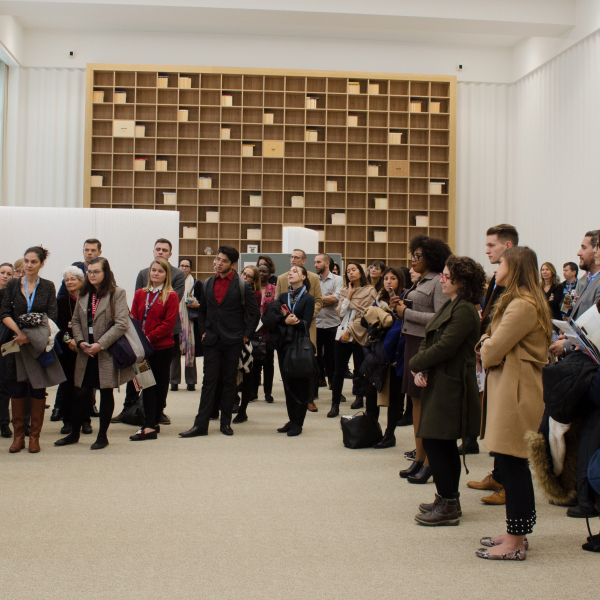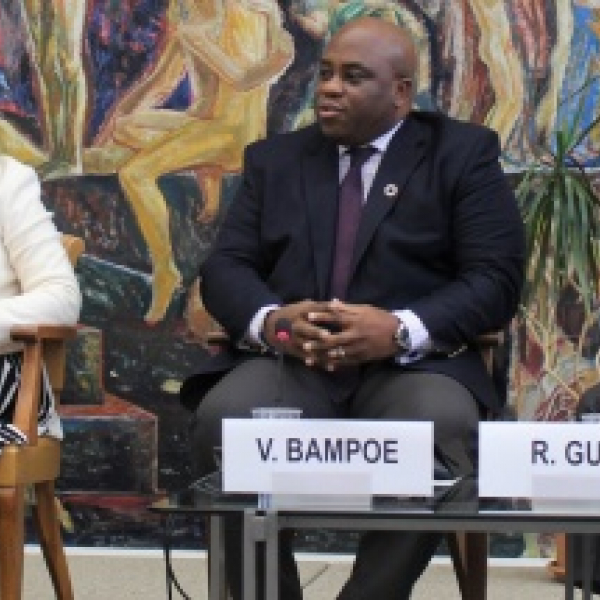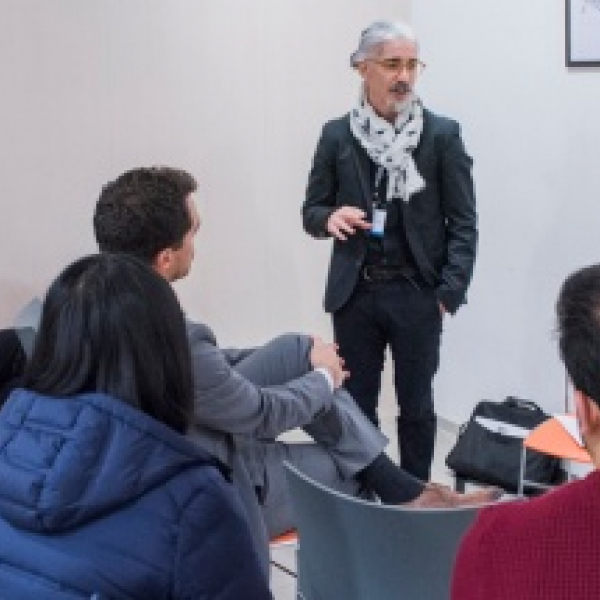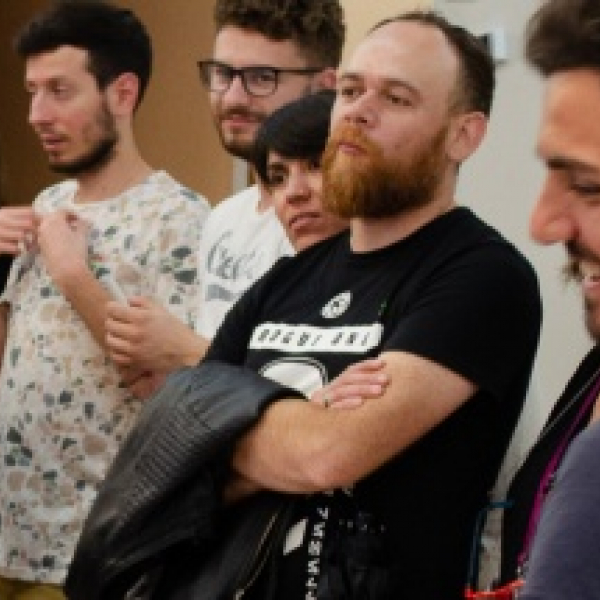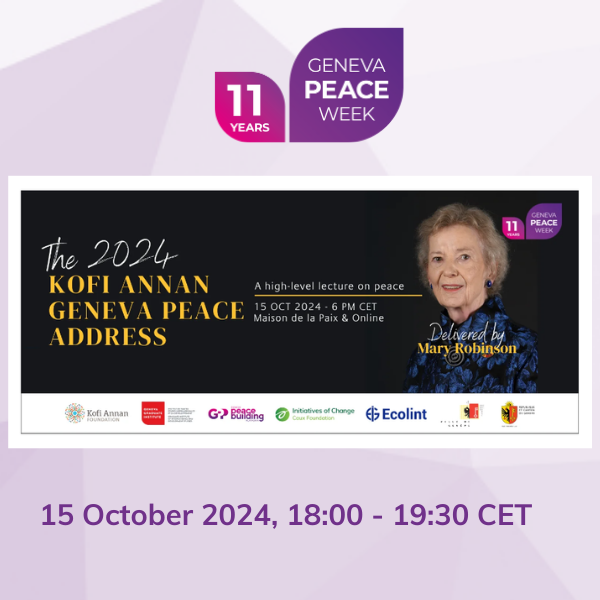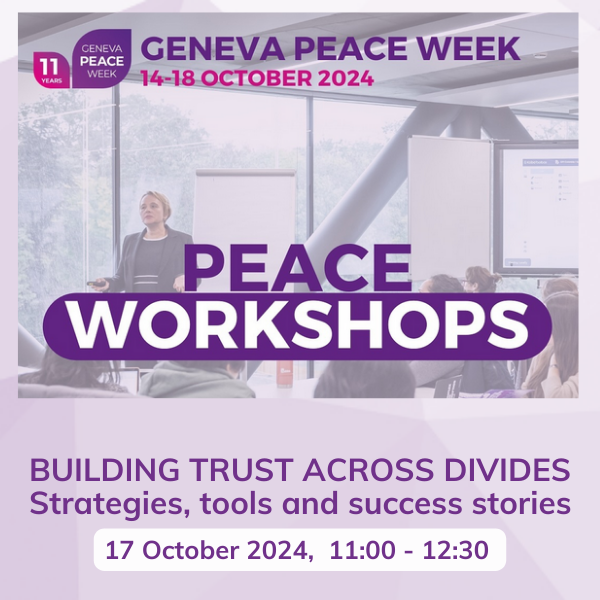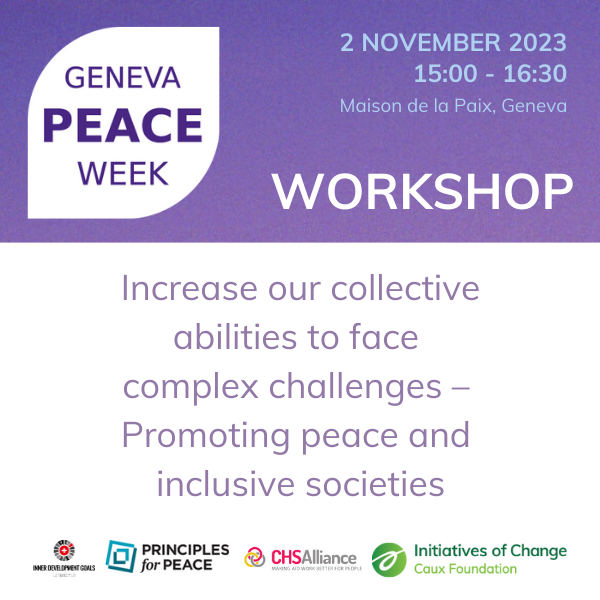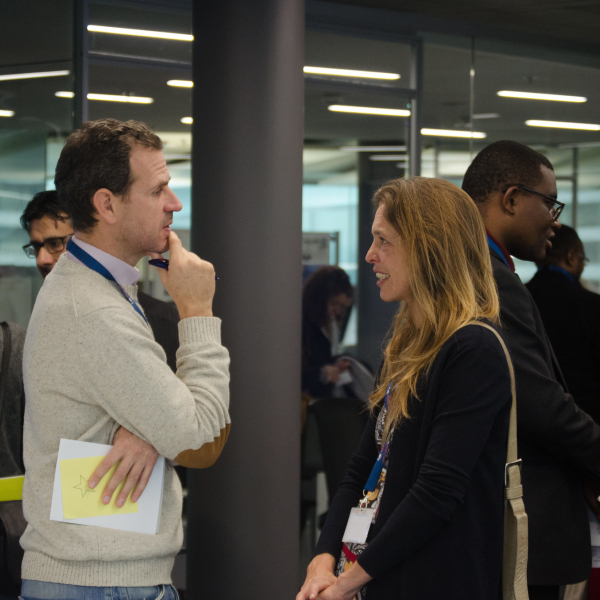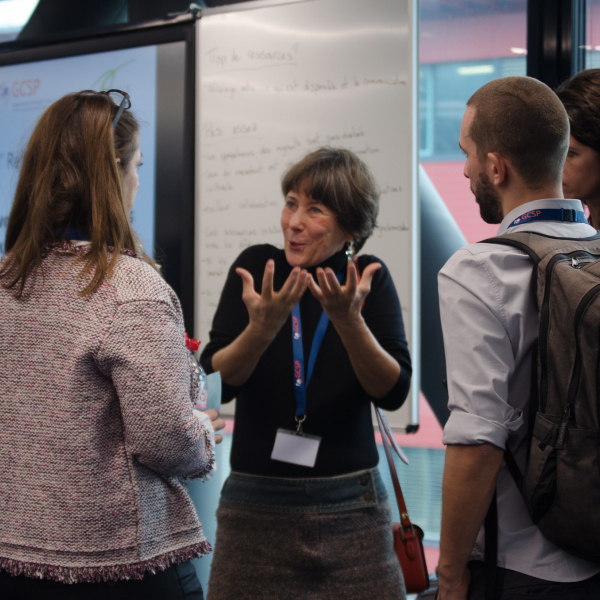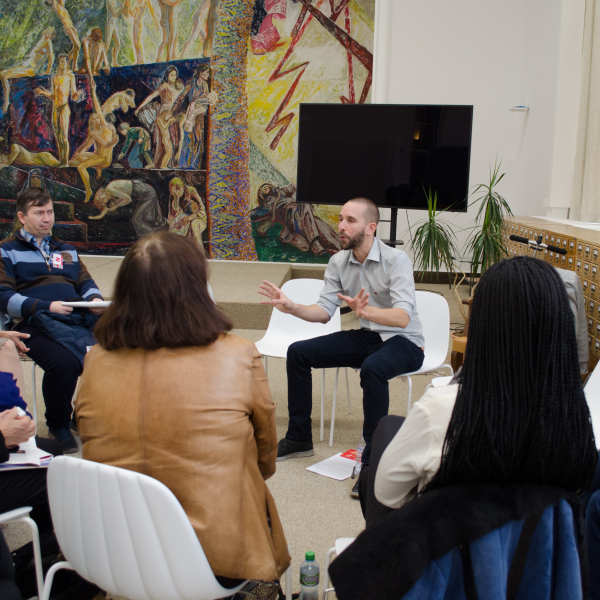2019 Geneva Peace Week: Building trust in Geneva and in Europe
27/11/2019
Geneva is full of organizations which are working for peace, human rights and wellbeing, but they rarely come together. Each year, Geneva Peace Week seeks to break down the silos between these actors and to stress that ‘each and every person, actor and institution has a role to play in building peace and resolving conflict’.
IofC facilitated three events at this year’s Peace Week, which ran from 4–8 November. Two focused on networking and aimed to encourage collaboration between Geneva’s humanitarian, human rights and development organizations as well as the private sector, academia and the media. The other was a human library on ‘building trust in and around Europe’.
The first networking event addressed ‘What is thriving and what is missing in the field of truth and trust?’. It was driven by participants’ questions and the topics they wished to be addressed.
The second event, on ‘Who is who at Geneva Peace Week?’, took place just before the official opening on the second day of the week. This one-hour facilitated event buzzed with energy, as around 120 people connected meaningfully with each other. Newly formed groups left together to attend the opening ceremony.
As in previous years, IofC also organized a human library, in collaboration with the Centre for Humanitarian Dialogue, the Hospice général of Geneva, the Kofi Annan Foundation, Lake Aid, the Geneva Centre for Security Policy and the UN Library Geneva. About 80 people took part, choosing two ‘human books’ to engage with out of five possibilities:
-
Geneva’s Hospice Général is the canton’s main social welfare office. Its Director General, Christoph Girod, and Project Coordinator, Brice Ngarambe, focused on the integration of refugees and asylum seekers in Switzerland. Brice shared his own story as an asylum seeker, who is now well integrated and helping new arrivals. ‘Not being afraid of going towards the other and learning the language is the most important thing,’ he said. He spoke of the difficulty of building trust when you are unsure whether you’ll be allowed to stay. Going to university, sharing a flat with other students and volunteering had all helped him to integrate. Christoph Girod mentioned the difficulty caused by decisions being made far away in Bern. He welcomed a new law on asylum which, he said, will allow refugee and asylum seeker welcome centres to make decisions on the spot and thereby shorten the application process.
-
Yevhen Shybalov, who works for the Centre for Humanitarian Dialogue in Ukraine, told how war came to his home region of Donbas. Half of Ukraine’s toxic waste is stored there, and this poses a threat to all parties in the conflict. He described how he helped to facilitate unofficial talks between experts on either side of the frontline, in the hope that ecological issues will become an essential part of any future settlement. ‘Common problems unite people,’ he said.
-
Muna Ismail, a scientist and environmentalist of Somalian origin living in Great Britain, is passionate about land restoration in post-conflict states. Over the last four years, she has been developing IofC UK’s Refugees as Rebuilders™ training programme for settled refugees from the Horn of Africa and other conflict-affected regions. She leads the programme’s module on sustainable livelihood. She is also developing a major project to reintroduce Yeheb, a drought-resistant plant which is native to Somalia and Somaliland and provides food for both animals and humans.
-
Independent filmmaker Manuela Fresil presented clips of her documentary, The Good Wheat and the Tares, in which Burim, a 14-year-old asylum seeker from Macedonia, stars. Then she asked Burim, who arrived in France when he was four, about his personal experience. He said that the most difficult part of those 10 years in limbo were the nights he spent on the floor. His family has spent the last two years in an ‘emergency welcome centre’ and his biggest dream now is to live in an apartment and be ‘normal’, like the other children in his school. Manuela said she made the documentary because she couldn’t ‘live knowing that children live on the streets my own country’. The combination of Burim’s shyness and Manuela’s activism made this ‘book’ a very emotional one to ‘read’.
-
The fifth human book was Hajer Sharief, co-founder of the Libyan NGO, Together We Build It, and part of the Extremely Together Initiative of the Kofi Annan Foundation. She made the point that what happens outside Europe affects the continent and vice versa. Her work focuses mainly on capacity building in Libya and raising awareness among the international community. She believes the present peace process is being handled as if it were a trade agreement and that women and children in particular are not adequately represented. ‘If people do not feel part of the process then peace will not be sustainable,’ she said. She called for a ban on supplying weapons to the armed groups. In Libya she organizes workshops for the community where she breaks down the formal concept of peace and security and brings it closer to community members, demonstrating that we all have a role to play.
After listening to two stories, participants gathered back in the main room to exchange what they had heard with each other. The books were then asked to share some final thoughts on how trust could be built in Europe.
As intergenerational dialogue is an issue in Europe, Manuela half-jokingly suggested a language exchange programme for grandparents. She also thought that reinstating night trains across Europe could boost intercultural exchange. Burim hoped for the day when that no one will have to wait ten years to get their papers
Brice and Christoph invited the audience to consider volunteering to help refugees and asylum seekers to integrate and to help them build trust in themselves. If you'd like to have more information on how to volunteer yourself you can take a look at their dedicated guide on how to volunteer (in French).
The event was part of IofC Switzerland’s Enriching Encounters series.
